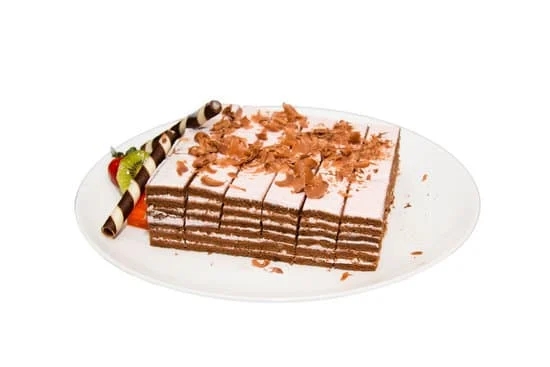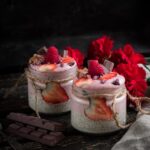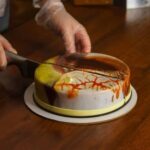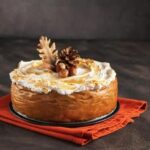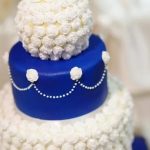Are you looking to take your cake decorating skills to the next level? Look no further than mastering the art of cake decorating with whipped cream frosting. Whipped cream frosting is a versatile and delicious option for adding a light and airy finish to your baked creations. Whether you’re a seasoned baker or just starting out, learning how to effectively use whipped cream frosting can elevate the presentation of your cakes.
One of the key advantages of using whipped cream frosting for cake decorating is its light and fluffy texture, which gives cakes a delicate and elegant appearance. Unlike buttercream frosting, whipped cream provides a smoother finish and is less sweet, making it perfect for those who prefer a lighter dessert option. Additionally, whipped cream frosting is easy to manipulate, allowing you to create intricate designs and decorations on your cakes with ease.
When delving into cake decorating with whipped cream frosting, it’s essential to start by selecting the right recipe that suits your taste preferences and desired consistency. From classic vanilla whipped cream to chocolate or fruit-flavored variations, there are endless possibilities for customizing your whipped cream frosting to complement different types of cakes. Experimenting with various recipes will help you find the perfect balance of sweetness and flavor for your creations.
Benefits of Using Whipped Cream Frosting for Cake Decorating
Whipped cream frosting is a versatile and delicious option for cake decorating that offers numerous benefits for both bakers and consumers alike. One of the main advantages of using whipped cream frosting is its light and airy texture, which adds a delicate and fluffy finish to cakes.
Unlike heavier buttercream frostings, whipped cream provides a refreshing and less dense alternative that complements the flavors of the cake without overpowering them. This makes it a great choice for those looking for a lighter dessert option.
Another benefit of using whipped cream frosting for cake decorating is its versatility in terms of flavor. Whipped cream can be easily infused with various flavors such as vanilla, chocolate, citrus, or coffee, allowing for endless creative possibilities when it comes to designing unique cakes. Additionally, whipped cream can be easily dyed with food coloring to achieve vibrant hues, making it ideal for themed or special occasion cakes where color coordination is key.
Furthermore, whipped cream frosting is a popular choice among health-conscious individuals as it generally contains fewer calories and less sugar compared to traditional buttercream frostings. This makes it a great option for those looking to indulge in a sweet treat without feeling guilty about their dietary choices.
Overall, the benefits of using whipped cream frosting for cake decorating are plentiful, from its light and airy texture to its versatility in flavor options and lower calorie content – making it a top choice for both amateur and professional bakers alike.
Choosing the Right Whipped Cream Frosting Recipe
When it comes to cake decorating with whipped cream frosting, one of the most crucial decisions you will make is choosing the right whipped cream frosting recipe. There are various recipes out there, each offering a unique flavor and texture profile. It’s essential to select a recipe that not only complements the cake you are decorating but also suits your personal taste preferences.
One popular option is a basic whipped cream frosting made with heavy cream, sugar, and vanilla extract. This simple recipe provides a light and airy texture that is perfect for delicate or fruity cakes. For those looking for a richer flavor profile, consider adding ingredients like mascarpone cheese or cream cheese to the whipped cream mixture. These additions can enhance the frosting’s stability and create a more indulgent finish.
Another important factor to consider when choosing a whipped cream frosting recipe is the level of sweetness you desire. Some recipes call for a higher amount of sugar, while others prefer less sweet variations.
It’s essential to taste test your frosting as you go along, adjusting the sugar levels to achieve the perfect balance for your cake. By selecting the right whipped cream frosting recipe, you can elevate your cake decorating game and create show-stopping desserts that are as delicious as they are beautiful.
Tips for Achieving the Perfect Whipped Cream Consistency
Achieving the perfect whipped cream consistency is essential for successful cake decorating with whipped cream frosting. The texture and stability of the whipped cream can greatly impact the overall look and feel of your cake creation. Here are some tips to help you achieve that perfect consistency:
- Start with cold heavy cream: Using cold heavy cream straight from the fridge will make it easier to whip into a stable foam.
- Chill your mixing bowl and beaters: Placing your mixing bowl and beaters in the freezer for a few minutes before whipping the cream can help speed up the process and ensure a firmer whipped cream.
- Add sugar gradually: When sweetening your whipped cream, add sugar gradually while whipping to prevent overbeating, which can lead to a grainy texture.
Another important factor in achieving the perfect whipped cream consistency is knowing when to stop beating. Overwhipped cream can lead to butter, while underwhipped cream may not hold its shape when decorating. Keep a close eye on the texture as you whip, and stop when you reach soft peaks that slowly fold over at the tip.
Remember, practice makes perfect when it comes to achieving the ideal whipped cream consistency for cake decorating. Experiment with different techniques and recipes until you find what works best for you. With patience and attention to detail, you’ll be able to create beautifully decorated cakes using whipped cream frosting that will impress all your friends and family.
Techniques for Decorating Cakes With Whipped Cream Frosting
Decorating cakes with whipped cream frosting can be both fun and challenging. One key technique to keep in mind is to ensure that your cake layers are completely cooled before applying the whipped cream. Warm cake layers can cause the frosting to melt, resulting in a messy and unstable decoration process. Additionally, it is important to work swiftly but delicately when decorating with whipped cream, as it can start to lose its form if left out for too long.
Another technique for decorating cakes with whipped cream frosting is to create different textures and patterns using piping tips. For a simple yet elegant look, use a star-shaped piping tip to create rosettes or swirls on top of the cake.
You can also experiment with different sizes of piping tips to achieve various designs such as ruffles, petals, or even intricate lace patterns. Remember to practice on a separate surface first before moving on to decorate your actual cake for better precision.
Moreover, incorporating colors and flavors into your whipped cream frosting can take your cake decorations to the next level. You can add food coloring gel or natural extracts like vanilla or almond to enhance both the appearance and taste of your frosting.
Just be mindful of not adding too much liquid as it can alter the consistency of the whipped cream. With these techniques in mind, you can elevate your cake decorating skills and impress your friends and family with beautifully decorated cakes using whipped cream frosting.
| Techniques | Description |
|---|---|
| Cool Cake Layers | Ensure cake layers are completely cooled before applying whipped cream |
| Use Different Piping Tips | Experiment with different piping tips for unique designs like rosettes, swirls, ruffles, etc. |
| Incorporate Colors and Flavors | Add food coloring gel or extracts like vanilla for enhanced appearance and taste |
Creative Ideas for Whipped Cream Frosting Decorations
When it comes to cake decorating with whipped cream frosting, the possibilities are truly endless. Adding whipped cream frosting to your arsenal of cake decorating techniques opens up a world of creative opportunities to make your cakes look and taste amazing. Whether you’re a beginner or an experienced baker, here are some creative ideas to help you take your whipped cream frosting decorations to the next level:
- Using piping tips: Invest in a variety of piping tips to create different designs with whipped cream frosting. From simple swirls to intricate flowers, piping tips allow you to add texture and dimension to your cakes.
- Layering flavors: Experiment with combining different flavors in your whipped cream frosting, such as adding extracts, fruit purees, or melted chocolate. Not only will this elevate the taste of your cakes, but it can also create visually stunning color combinations.
- Incorporating toppings: Take your whipped cream frosting decorations up a notch by incorporating toppings like fresh berries, shaved chocolate, edible flowers, or sprinkles. These added elements can provide both texture and flavor contrast to your cakes.
In addition to these creative ideas, don’t be afraid to think outside the box when it comes to decorating with whipped cream frosting. Consider using stencils, molds, or even painting techniques to create unique designs on your cakes. The key is to have fun and let your imagination run wild – after all, cake decorating should be a joyful and rewarding experience.
- Furthermore strengthening the flavor profile by adding complementary fillings between cake layers before applying the whipped cream frosting can enhance the overall taste and presentation of the cake.
- Moreover considering thematic or seasonal decorations like fondant cutouts for special occasions or holidays can add a personal touch and make each cake creation truly memorable.
With these creative ideas in mind, you’ll be well on your way to mastering the art of cake decorating with whipped cream frosting and delighting yourself and others with beautiful and delicious creations that are sure to impress.
Troubleshooting Common Issues When Decorating With Whipped Cream Frosting
Issue: Runny Whipped Cream
One common issue that many cake decorators face when working with whipped cream frosting is dealing with a runny consistency. This can be especially frustrating when trying to achieve intricate designs or decorations on your cakes. The key to fixing this problem is to ensure that your whipped cream is properly stabilized.
One effective method is to use gelatin, which helps to hold the whipped cream together and prevent it from becoming too soft. Another option is to chill your mixing bowl and beaters before whipping the cream, as cold equipment can help the cream hold its shape better.
Issue: Deflating Whipped Cream
Another challenge that decorators may encounter is whipped cream deflating or losing its volume when decorating a cake. To avoid this issue, it’s important to not overwhip the cream, as this can cause it to turn into butter or lose its airy texture.
Additionally, make sure that you are folding in any flavorings or colors gently to preserve the fluffiness of the whipped cream. If you find that your whipped cream has deflated, you can try re-whipping it for a short time to see if you can revive some of its volume.
Issue: Melting Whipped Cream Frosting
During hot weather or if left out at room temperature for too long, whipped cream frosting can start to melt and lose its shape on a cake. To prevent this issue, keep your decorated cakes refrigerated until ready to serve, especially if they are made with whipped cream frosting.
If you need to transport a cake with whipped cream frosting in warm weather, consider using a cooler or insulated container to maintain its stability. Additionally, adding ingredients like stabilizers or cornstarch to your whipped cream recipe can help it withstand warmer temperatures without melting too quickly.
Best Practices for Storing Cakes Decorated With Whipped Cream Frosting
Storing cakes decorated with whipped cream frosting can be a bit tricky due to the delicate nature of this type of frosting. However, by following some best practices, you can ensure that your beautifully decorated cake stays fresh and intact until it is ready to be served.
Refrigeration Is Key
One of the most important things to remember when storing a cake with whipped cream frosting is to keep it refrigerated. Whipped cream is a perishable product and can quickly break down if left at room temperature for too long. Make sure to place your cake in the refrigerator as soon as possible after decorating it. Additionally, store the cake in an airtight container or cover it with plastic wrap to prevent any odors from seeping into the frosting.
Avoid Freezing
While refrigeration is necessary for storing cakes with whipped cream frosting, freezing is not recommended. The texture of whipped cream changes when frozen and then defrosted, resulting in a soggy and unappealing appearance. If you need to make your cake ahead of time, it’s best to keep it chilled in the refrigerator rather than freezing it.
Short Shelf Life
It’s important to note that cakes decorated with whipped cream frosting have a shorter shelf life compared to those with buttercream or fondant. Whipped cream tends to break down faster, especially when exposed to air or moisture.
To enjoy your cake at its freshest, try to consume it within 1-2 days of decorating. If you must store it longer, consider making the components separately (cake layers, filling, and whipped cream) and assembling them just before serving for optimal freshness.
Conclusion
In conclusion, cake decorating with whipped cream frosting offers a versatile and delicious way to elevate your creations. The light and airy texture of whipped cream frosting provides a delicate touch to any cake, making it ideal for various occasions such as birthdays, weddings, or simply a sweet treat for yourself. By incorporating whipped cream frosting into your cake decorating repertoire, you open up a world of creative possibilities that are sure to impress your family and friends.
One of the key benefits of using whipped cream frosting for cake decorating is its smooth and creamy consistency, which allows for easy application and decoration on cakes of all shapes and sizes. Additionally, whipped cream frosting can be easily tinted with food coloring to achieve different shades, making it a versatile option for creating vibrant and eye-catching designs.
Whether you’re piping rosettes, creating intricate patterns, or simply spreading a smooth layer over a cake, whipped cream frosting offers endless opportunities for artistic expression.
To truly excel in the art of cake decorating with whipped cream frosting, it is important to choose the right recipe, achieve the perfect consistency through proper technique, and troubleshoot common issues that may arise during the decorating process. By following these tips and techniques outlined in this article, you can enhance your skills and take your cake decorating game to the next level.
So why not grab your whisk, select your favorite recipe, and start exploring the wonderful world of cake decorating with whipped cream frosting today?
Frequently Asked Questions
Can You Decorate a Cake With Whipped Cream Icing?
Decorating a cake with whipped cream icing is certainly possible, but it does come with its challenges. Whipped cream tends to be soft and may not hold intricate designs very well. However, simple swirls or rosettes can be achieved with whipped cream if it’s stabilized properly.
How Do You Stiffen Whipped Cream for Piping?
Stiffening whipped cream for piping involves using certain techniques or ingredients to help maintain its shape. One common method is to add gelatin or cornstarch to the whipped cream while beating it, which helps it hold up better when piped onto a cake or dessert. Another way is to chill the bowl and beaters before whipping the cream.
Does Cake With Whipped Cream Frosting Need to Be Refrigerated?
Cake with whipped cream frosting should typically be refrigerated due to its dairy content. Whipped cream can quickly spoil if left out at room temperature for too long, so storing the cake in the refrigerator will help keep it fresh and safe to eat.
It’s best to bring the cake to room temperature before serving for optimal taste and texture.

Welcome to our cake decorating blog! My name is Destiny Flores, and I am the proud owner of a cake decorating business named Cake Karma. Our mission is to provide delicious, beautiful cakes for all occasions. We specialize in creating custom cakes that are tailored specifically to each customer’s individual needs and tastes.

